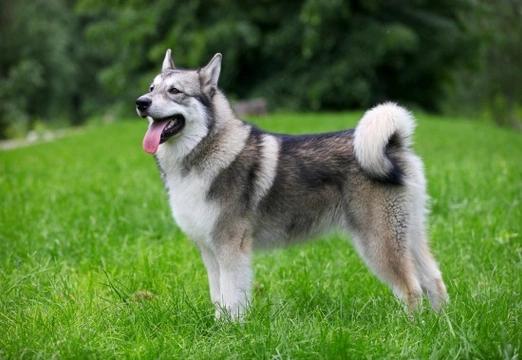Pets
Pets for studWanted petsBreedersAccessories & services
Knowledge hub
Support
Support & safety portal
Vitamins, minerals and acids that support skin and coat health
As well as ensuring that your dog receives enough to eat, it is of course vital to ensure that the food that they eat contains all of the vitamins, minerals, trace elements and acids etc., that they need for good health; but often, it is difficult to tell what is what! Unless you have a degree in nutrition or several hours to spend on researching and learning about canine nutrition and all of the tiny elements that make up the contents of dog food, you may well find decoding your dog food labels is akin to reading ancient Greek.
All of the nutrients in dog food play important roles in supporting healthy growth, keeping bones strong and much more, and a large part of their job is renewing cells and taking care of your dog’s skin and coat. While it is fair to assume that all good quality, complete food will account for all of these needs, different brands have different make-ups and not all dog foods are created equal; some ingredient combinations will have a much more beneficial effect on the skin and coat than others!
Read on to learn more about the vitamins, minerals and acids that should be present within your dog’s meals, plus how these help to support a healthy skin and coat.
The role of the skin and coat
The core role of the dog’s skin and coat is to act as a barrier; to keep some things inside and keep others on the outside! Skin and hair help to retain warmth and hydration, and keep out bacteria, viruses and other nasties. In order for the skin and coat to perform all of these tasks, they must be kept in tip-top condition, something that can largely be achieved by correct feeding. Skin is made up of a combination of fat and protein, and if the cells of the skin do not contain sufficient fat and protein to keep them strong, they will become weak and more likely to let bugs and bacteria pass, leading to problems with the condition of the skin.
The coat of the dog is largely protein-based, and again, ensuring that the coat is protein-rich is important to keep it in good condition and stop hair from weakening or falling out over time.
Vitamins and minerals you should find in dog food
In order to keep your dog’s skin and coat correctly nourished and in great condition, a range of vitamins and minerals should be present within their food, and provide 100% of their recommended daily allowance of that element. Check the ingredients listings and nutritional breakdown of your dog food, and make sure that all of the following are present:
Copper
Copper helps with the synthesis of the skin’s protein, tissue and pigment.
Zinc
Zinc helps the body to metabolise protein and fat.
Biotin
Biotin helps the body to make use of the protein made available to it.
Riboflavin
Riboflavin, or vitamin B2, also works with the body to metabolise far and protein.
Vitamin A
Vitamin A is the vitamin responsible for repairing damaged skin, and promoting skin growth.
Vitamin C
Vitamin C helps strengthen the immune system as a whole, and aids with wound healing.
Vitamin E
Vitamin E helps to guard cells against oxidant damage and the effects of pollution.
Fatty acids and amino acids
As well as all of the vitamins and minerals mentioned above, your dog needs to consume the elements that help to produce that vital fat and protein for healthy skin and a healthy coat. Protein contains amino acids, and this can be gained from eating both plants and meat. While dogs should be given a combination of both plant-based food and meat based food, the emphasis should be placed on meat-based protein for a natural lifestyle. While plant based proteins can offer your dog some of the essential amino acids that they need, meat-based proteins contain all of them.
Most of us have heard of “good fats” and “bad fats” when referring to human nutrition, and while we are often led to think that anything with “fat” in it is bad, some types of fats are beneficial and even essential for health. Fats are present in both meat and plant-based foods, which become incorporated into the cells of the skin as fatty acid. There are various different types of fatty acids, but the one that is essential for dogs is called linoleic acid, and this is vital for the health of the coat and skin. A lack of linoleic acid within the diet can lead to hair loss, a greater susceptibility to infections, and a dull coat and greasy skin, all things that the dog owner will of course want to avoid!
Fatty acids such as linoleic acid can be found in a wide variety of products, including fish, chicken, soy and corn, and should be mentioned within the trace elements breakdown on your dog food packaging.



